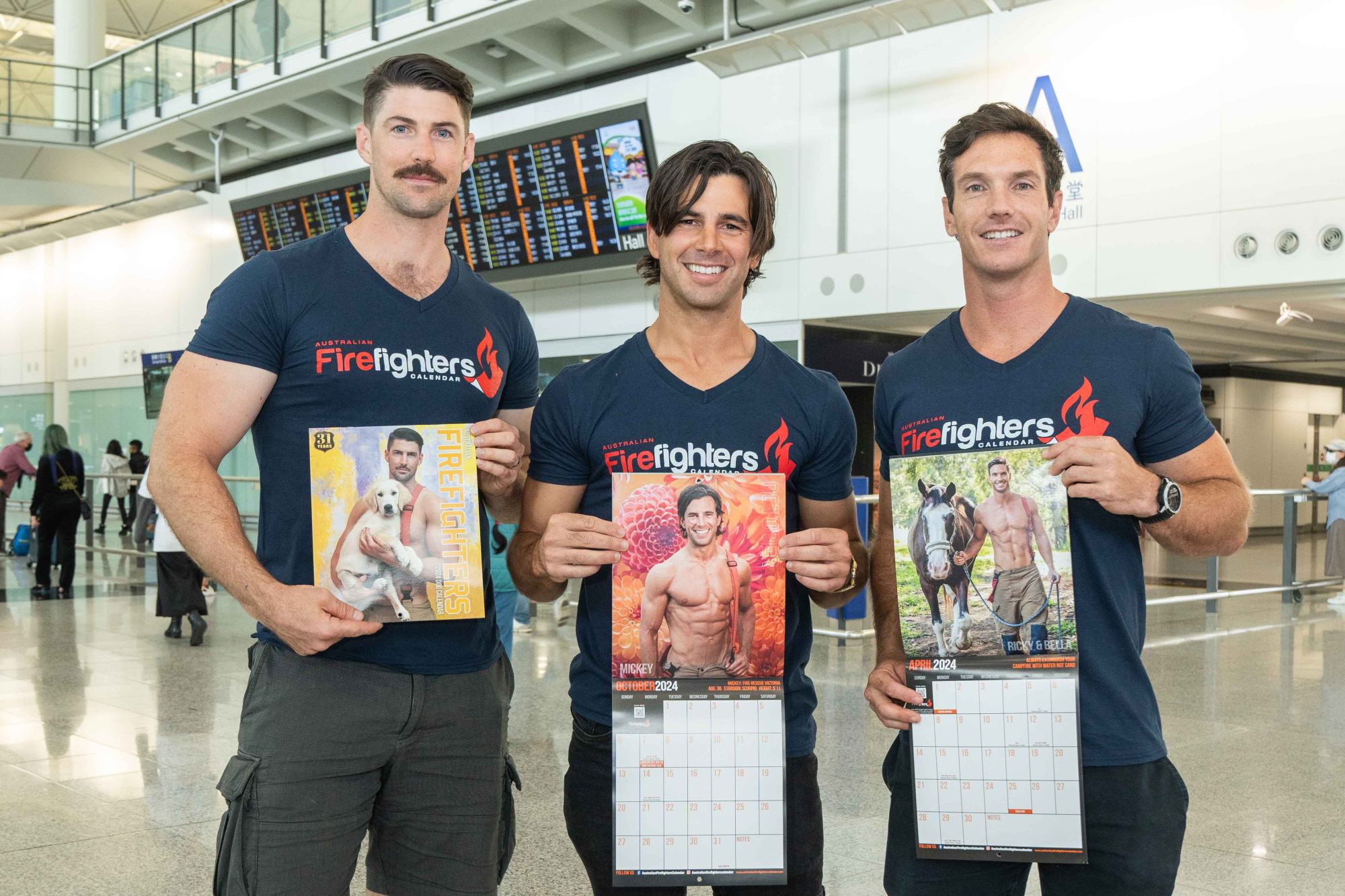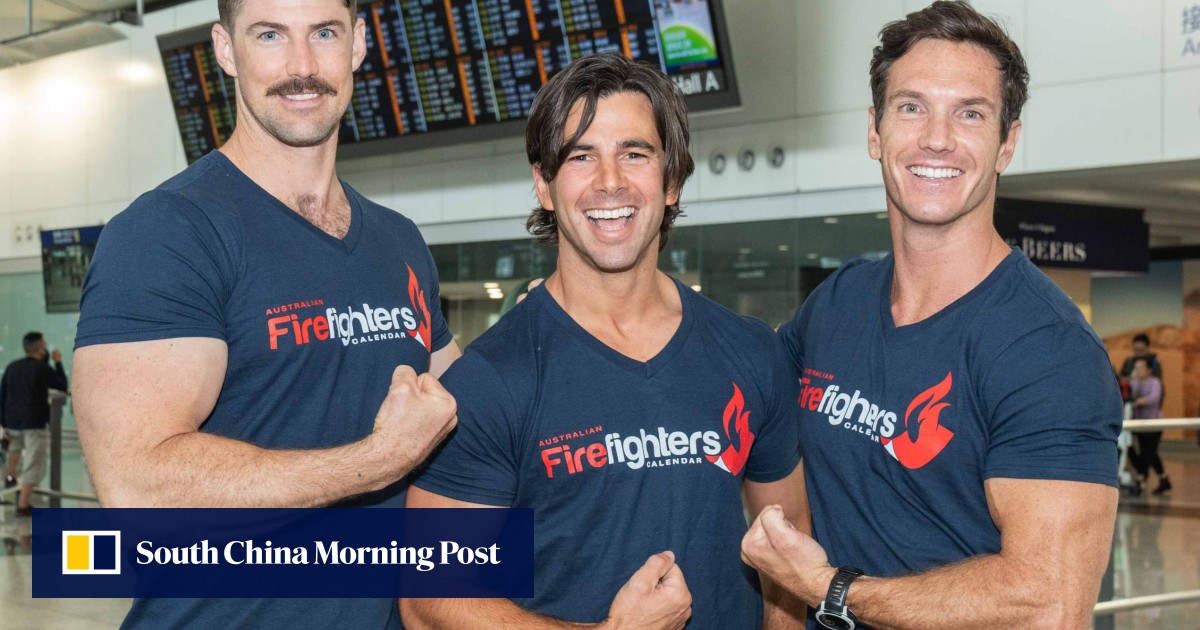“We have the classic, dogs, cats, horses, mixed animals and the hero calendars. The hero calendar has a bit more effects with fire and smoke,” firefighter Ricky Smith, the 2024 classic calendar’s cover model, tells the Post.
While Australia is not the only country in the world to print a firefighter calendar, its is considered the most well-known.
Since it began, the calendar has raised millions of dollars for Australian charities such as Kids with Cancer, Native Animal Rescue and Byron Bay Wildlife Hospital.
“I think we’re in over 100 countries now,” says Brandon Purvis, the cover model for the 2024 dogs calendar. “The range and the reach it’s made is amazing.”
“My brother lives in the US and he saw calendars of me in a shopping centre over there,” adds Michael Galanos, who poses for October in the classic calendar.
The calendar models are actual firefighters who are not used to the limelight. “We’re just firemen in Australia and we’re not celebrities at all. This is all new to us and it’s been interesting and different,” says Smith, who works for the Queensland Fire and Emergency Services in Brisbane.

Purvis is an eager consumer of Chinese food in Australia. “I try as much Chinese food as I can back home, which has definitely helped with my chopstick skills on this trip,” he says.
Although the trio are in Hong Kong to promote a spicy dish and tie it in with their spicy calendars, at the end of the day firefighters are public servants who put their lives on the line for their communities – a point not lost on any of them.

“There’s definitely been some dangerous situations,” recalls Smith. “I think our training prepares us for that and sets up a really good base for us to handle those situations.”
“A lot of the time, when it’s all happening and the adrenaline level is high, you’re just focused on doing your job and don’t realise all the dangers around you,” adds Purvis. “Afterwards you’re like; wow, that was pretty dangerous.
“But we’re always confident in what we do and the crew that we’ve trained with. We trust in each other and trust our training.”

“The main thing is to be prepared,” Smith says. “It’s important to have a plan in place and to execute that plan, whether it is to stay or evacuate and to stock up on food and water if you’re planning to stay.”
“Keep in contact with your local government,” adds Purvis. “And listen to their advice and warnings.”
“At the end of the day, life is more valuable than property. So you got to stay safe,” says Smith.







